
A United Nations Security Council resolution (UNSCR) is a United Nations resolution adopted by the Security Council (UNSC), the United Nations (UN) 15-member body charged with "primary responsibility for the maintenance of international peace and security".
A United Nations General Assembly resolution is a decision or declaration voted on by all member states of the United Nations in the General Assembly.
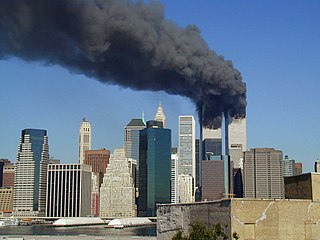
United Nations Security Council Resolution 1373, adopted unanimously on 28 September 2001, is a counterterrorism measure passed following the 11 September terrorist attacks on the United States. The resolution was adopted under Chapter VII of the United Nations Charter, and is therefore binding on all UN member states.
United Nations Security Council Resolution 27 was adopted on 1 August 1947. The Council called for a ceasefire and a peaceful resolution between the parties from the Netherlands and Indonesia involved in the Indonesian National Revolution.
United Nations Security Council Resolution 30 was adopted by on 25 August 1947. The parties from the Netherlands and Indonesia involved in the Indonesian National Revolution agreed to comply with Resolution 27. The Council requested that each member recall a diplomatic officer from Batavia for briefings on the situation.
United Nations Security Council Resolution 31 was adopted on 25 August 1947. The Council formed a committee to assist in the peaceful resolution of the Indonesian National Revolution.
United Nations Security Council Resolution 32 was adopted by the United Nations Security Council on August 26, 1947. The Council formally reminded both sides of the Indonesian National Revolution to adhere to Resolution 27, which called for a ceasefire and peaceful resolution to the conflict.
United Nations Security Council Resolution 40, adopted on February 28, 1948, requested that the Committee of Good Offices watch the political developments in western Java and Madura and to report their findings to the Council frequently.
United Nations Security Council Resolution 41, adopted on February 28, 1948, commended both parties in the Indonesian National Revolution for the recent signing of a truce and attempts to comply with United Nations Security Council Resolution 27, repeated the offer of mediation made in United Nations Security Council Resolution 31, and requested the Committee of Good Offices keep them informed as to the progress of political settlement in the Indonesia.
United Nations Security Council Resolution 63, adopted on December 24, 1948, in response to a report by the Committee of Good Offices the Council called upon the parties to cease hostilities and to release the President of the Republic of Indonesia and other political prisoners arrested since December 18, 1948.
United Nations Security Council Resolution 64, adopted on December 28, 1948, noted that the Netherlands had not complied with the demands to release the President of the Republic of Indonesia and other political prisoners as issued in United Nations Security Council Resolution 63. The Resolution demanded that the Netherlands set free these prisoners forthwith and report to the Council within 24 hours.
United Nations Security Council Resolution 67, adopted on January 28, 1949, satisfied that both parties in the Indonesian Conflict continued to adhere to the principles of the Renville Agreement, the Council called upon the Netherlands to immediately discontinue all military operations and upon the Indonesian Republic to order its armed adherents to cease guerrilla warfare and for both parties to cooperate in the restoration of peace and the maintenance of law and order throughout the area. The Council further called upon the Netherlands to release all political prisoners arrested since December 17, 1948 and to facilitate the immediate return of officials of the Government of the Republic of Indonesia to Jogjakarta and afford to them such facilities as may reasonably be required by that Government for its effective functioning in that area.
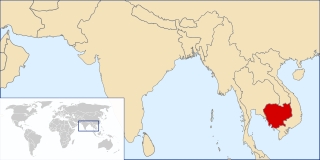
United Nations Security Council resolution 668, adopted unanimously on 20 September 1990, after noting the ongoing political discussions and efforts regarding a just and lasting peaceful situation in Cambodia, the council endorsed the political framework that would enable the Cambodian people to exercise their right to self-determination through U.N. organised elections.
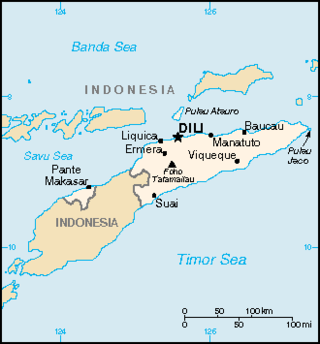
United Nations Security Council resolution 1236, adopted unanimously on 7 May 1999, after recalling previous resolutions on East Timor including 384 (1975) and 389 (1976), the Council welcomed an agreement between Indonesia and Portugal on the future of East Timor and a proposed United Nations presence to assist with the East Timor Special Autonomy Referendum scheduled for August 1999.
United Nations Security Council resolution 1246, adopted unanimously on 11 June 1999, after recalling previous resolutions on East Timor, particularly Resolution 1236 (1999), the council established the United Nations Mission in East Timor (UNAMET) to organise and conduct the East Timor Special Autonomy Referendum on the future status of East Timor, scheduled for August 1999.
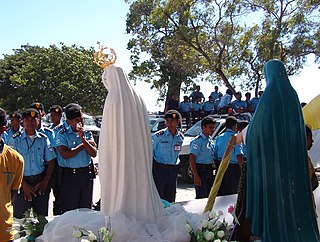
United Nations Security Council resolution 1262, adopted unanimously on 27 August 1999, after recalling previous resolutions on East Timor, particularly resolutions 1246 (1999) and 1257 (1999), the Council extended the mandate of the United Nations Mission in East Timor (UNAMET) until 30 November 1999.
United Nations Security Council resolution 1264, adopted unanimously on 15 September 1999, after recalling previous resolutions on East Timor (Timor-Leste), the Council authorised the establishment of the multinational International Force for East Timor (INTERFET) to restore peace and security in the territory, facilitate humanitarian assistance and protect the United Nations Mission in East Timor (UNAMET).
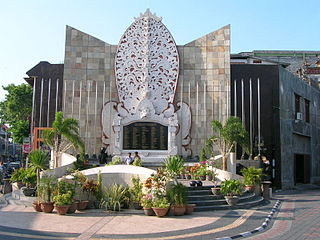
United Nations Security Council Resolution 1438, adopted unanimously on 14 October 2002, after reaffirming the principles of the United Nations Charter and Resolution 1373 (2001), the Council condemned the bombings in Bali, Indonesia.

United Nations Security Council resolution 1599, adopted unanimously on 28 April 2005, after reaffirming previous resolutions on East Timor (Timor-Leste), particularly resolutions 1543 (2004) and 1573 (2004), the council established the United Nations Office in Timor-Leste (UNOTIL) to follow on from the United Nations Mission of Support to East Timor (UNMISET) as a special political mission for one year until 20 May 2006.

United Nations Security Council Resolution 1757 was adopted on 30 May 2007.







